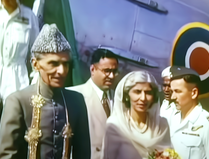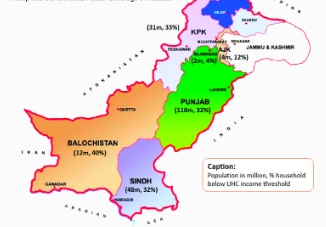Quaid-e-Azam Muhammad Ali Jinnah: Architect of Pakistan’s Independence
Muhammad Ali Jinnah, known as Quaid-e-Azam, is revered as a visionary leader who played a pivotal role in liberating the Indian subcontinent from British colonial rule. His unwavering commitment, legal brilliance, and tireless efforts led to the establishment of Pakistan as an independent nation. This comprehensive biography explores the life, challenges, and achievements of Quaid-e-Azam, highlighting his multifaceted personality and enduring legacy that continues to inspire generations.
Early Life and Educational Pursuits
Born on December 25, 1876, in Karachi, Quaid-e-Azam Muhammad Ali Jinnah hailed from a prominent family of merchants. His parents, Poonja Jinnah and Mithibai Jinnah, created an environment that nurtured his learning and growth. Jinnah’s educational journey began in Karachi and later took him to England for advanced studies. Enrolling at the esteemed Inns of Court School of Law, he was called to the bar at the young age of 19.
Personal Dimensions:
Beyond his political acumen, Jinnah’s private life reveals his character and values. His marriage to Rattanbai Petit, affectionately known as Ruttie, defied societal norms, highlighting his commitment to personal liberty. Ruttie’s untimely death in 1929 deeply affected him. Jinnah’s interests, ranging from literature to art, demonstrate his multifaceted personality. His personal library, filled with diverse topics, showcased his intellectual curiosity, while his appreciation for fine attire and classical music reflected his aesthetic inclinations.
Sisterly Bonds:
Quaid-e-Azam Muhammad Ali Jinnah shared a deep bond with his sister, Fatima Jinnah. Her influence on his views regarding education, women’s rights, and social justice was profound. Fatima Jinnah’s relentless advocacy for women’s involvement in the freedom movement mirrored her brother’s dedication to equality.

Legal Prowess and Professional Journey:
Jinnah’s legal career began in London, where he honed his skills in prestigious law firms. Returning to India in 1896, he established a successful law practice in Bombay (now Mumbai). Renowned for his legal acumen, incisive intellect, and unwavering dedication to justice, Jinnah emerged as one of the most distinguished lawyers of his time, primarily focusing on commercial law.

Evolution of Political Awareness:
Quaid-e-Azam Muhammad Ali Jinnah’s political journey started during his time in London, where he was exposed to the ideals of constitutionalism, liberty, and self-determination. Initially joining the Indian National Congress, he advocated for Hindu-Muslim unity. However, concerns over Muslim representation and rights led him to reconsider his stance.
Guardian of Muslim Rights:
As the political landscape evolved, Jinnah’s focus shifted towards protecting the rights and aspirations of Muslims in India. He believed that a united India could only thrive if minorities, particularly Muslims, were given proper representation and protection. This shift propelled him to prominence within the All-India Muslim League.
Quest for Separate Electorates:
Quaid-e-Azam Muhammad Ali Jinnah’s significant contribution was advocating for separate electorates for Muslims, ensuring their representation and preventing political marginalization in a predominantly Hindu India. This demand was realized in the Lucknow Pact of 1916, a crucial agreement between the Indian National Congress and the Muslim League.
Contribution to Montagu-Chelmsford Reforms:
Quaid-e-Azam Muhammad Ali Jinnah continued to participate in political dialogues between Indians and the British. He played a crucial role in the Montagu-Chelmsford Reforms, which laid the groundwork for partial self-governance in British India. Despite his reservations about the reforms and disillusionment with the Congress’s stance on Muslim interests, he adopted more assertive positions.
Pioneering the Pakistan Movement:
Quaid-e-Azam Muhammad Ali Jinnah’s legacy is anchored in his steadfast demand for a separate Muslim homeland, culminating in the creation of Pakistan in 1947. He argued that Muslims and Hindus were distinct nations, necessitating separate territories. This concept, known as the “Two-Nation Theory,” became the foundation of his vision for an independent Pakistan.
Leadership within the Muslim League:
Jinnah’s leadership of the Muslim League was instrumental in advancing the cause of Pakistan. His eloquence, determination, and meticulous strategy mobilized Muslims across the subcontinent. Utilizing his legal expertise, he negotiated with the British and other stakeholders, leading to the Lahore Resolution in 1940, which called for a separate Muslim state.
Independence and Partition:
The pinnacle of Jinnah’s efforts came with the partition of British India and the establishment of Pakistan on August 14, 1947. As Pakistan’s first Governor-General, Jinnah guided the fledgling nation through its initial challenges, laying the foundations of governance based on principles of equality, religious freedom, and social justice.

Final Years and Legacy:
Jinnah’s health rapidly declined due to his relentless dedication, leading to his death on September 11, 1948. His passing left a young nation to navigate its future. Nevertheless, his legacy endures. Jinnah’s principles of unity, faith, and discipline continue to guide Pakistan. His vision for a democratic, inclusive society remains integral to the nation’s ethos.

Famous Books About Jinnah
Several notable books have been written about Quaid-e-Azam Muhammad Ali Jinnah, each shedding light on different aspects of his life and leadership. Here are some famous books:
- “Jinnah: Creator of Pakistan” by Hector Bolitho
- “Jinnah: India-Partition-Independence” by Jaswant Singh
- “Jinnah: Myth and Reality” by Ayesha Jalal
- “Quaid-i-Azam Mohammad Ali Jinnah: His Personality and His Politics” by Stanley Wolpert
- “Jinnah of Pakistan” by Stanley Wolpert
- “Jinnah: Ambassador of Hindu-Muslim Unity” by Gopal Krishna Gokhale
- “My Brother” (Autobiography of Fatima Jinnah)
- “Jinnah: The Life and Times of Muhammad Ali Jinnah” by Mahomed Ali Currim Chagla
- “Jinnah and Tilak: Comrades in the Freedom Struggle” by A.G. Noorani
- “Great Leaders: Quaid-e-Azam” by M.H. Saiyid
Conclusion
Muhammad Ali Jinnah’s legacy is a testament to his principles, leadership, and the profound bond he shared with his sister. His journey from a determined lawyer to the founder of a nation highlights his unwavering resolve, strategic acumen, and commitment to justice. Balancing political commitments with personal values, Jinnah’s life offers valuable insights into the man behind the leader, underscoring his lasting impact on history.
